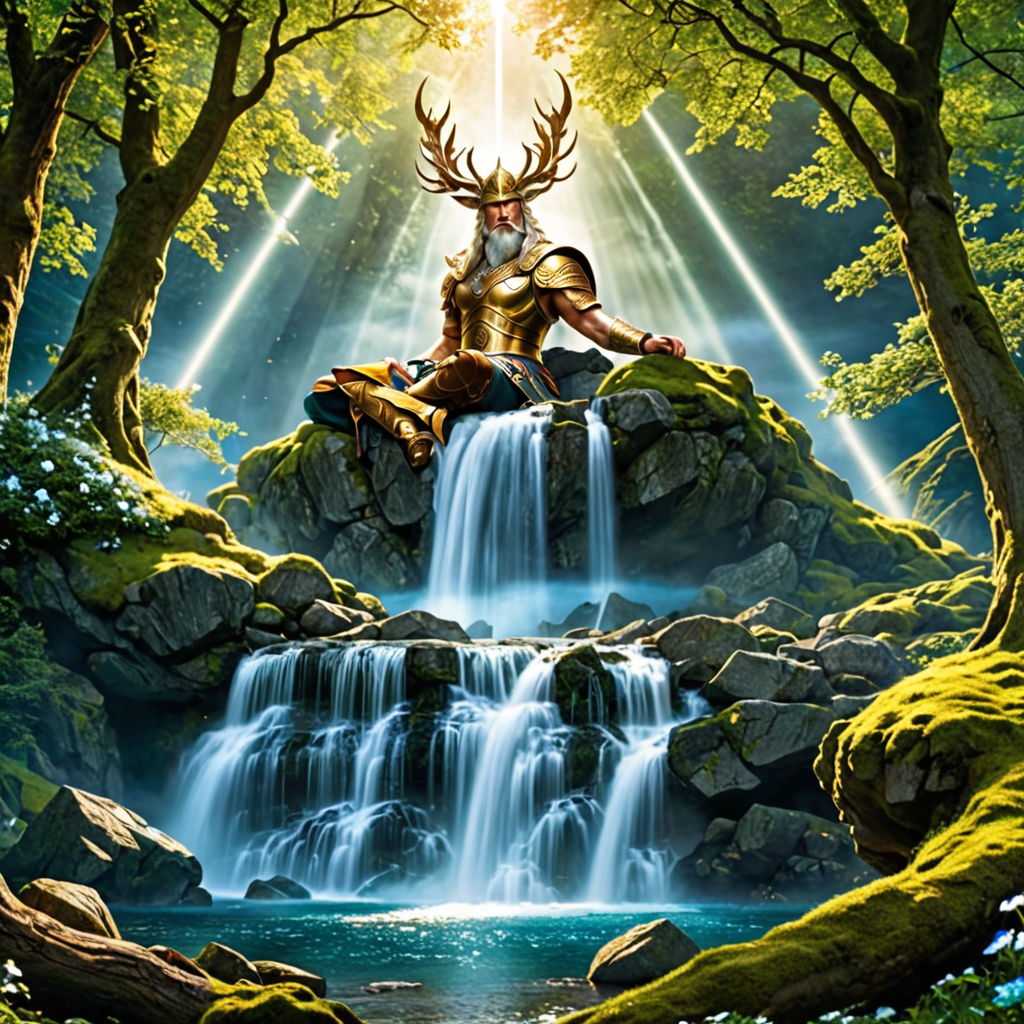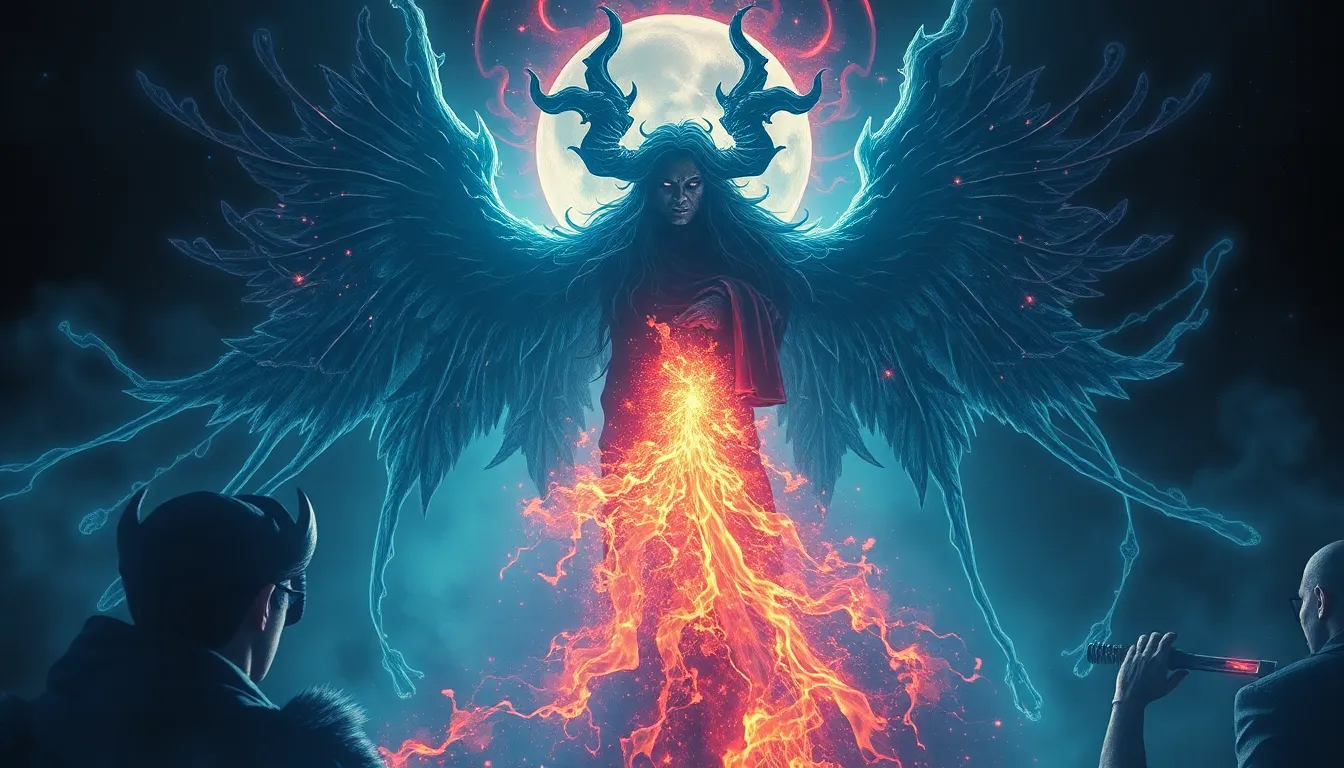Cultural Hero Myths: The Legends That Fuel Our Dreams
Introduction to Cultural Hero Myths
Cultural hero myths are timeless narratives that encapsulate the values, beliefs, and aspirations of societies across the globe. Defined as stories centered around individuals who embody virtues such as bravery, kindness, and resilience, these myths serve to inspire and guide both personal and collective behavior. They often illustrate the journey of the hero in overcoming adversity, thus shaping societal values and individual aspirations.
From ancient epics to modern storytelling, hero myths play a crucial role in shaping our identities and understanding our place within the world. They provide a framework for interpreting challenges and aspirations, serving as beacons of hope and motivation.
The Archetype of the Hero: A Psychological Perspective
Psychologist Carl Jung proposed the concept of archetypes, universal symbols and themes that recur in literature and mythology. The hero archetype represents the journey from innocence to experience, reflecting personal growth and transformation. This journey often follows a recognizable pattern known as the hero’s journey, which includes stages such as the call to adventure, facing trials, and achieving a goal.
The psychological impact of these hero myths is profound. They shape personal identity and contribute to collective consciousness, influencing how individuals view themselves and their potential. By embodying the qualities of the hero, people can find meaning and purpose in their lives, drawing strength from these narratives.
Mythical Heroes Across Cultures
Hero figures can be found in every culture, each reflecting the values and struggles of their respective societies. Here are a few notable examples:
- Hercules: In Greek mythology, Hercules is celebrated for his incredible strength and heroic deeds, representing the value of courage and perseverance.
- Gilgamesh: The Sumerian king of Uruk, Gilgamesh’s journey in the Epic of Gilgamesh explores themes of friendship, mortality, and the quest for immortality.
- Mulan: In Chinese folklore, Mulan disguises herself as a man to take her ailing father’s place in the army, showcasing themes of loyalty, bravery, and gender roles.
These heroes not only embody the ideals of their cultures but also reflect the challenges faced by their societies, offering valuable lessons that resonate through time.
The Evolution of Hero Myths in Modern Society
As society evolves, so do the narratives surrounding heroism. Traditional hero myths have adapted to contemporary contexts, particularly in the realm of comics and films. Superheroes like Spider-Man and Wonder Woman represent modern interpretations of heroism, grappling with personal dilemmas while fighting for justice.
The influence of technology and media has transformed the portrayal of heroism, making it more accessible and relatable. Today, stories are disseminated through various platforms, allowing diverse interpretations and adaptations that reflect current societal values.
Cultural Hero Myths as Catalysts for Change
Many cultural heroes have inspired significant social movements, serving as catalysts for change. Consider the following case studies:
- Martin Luther King Jr.: His nonviolent approach to civil rights and powerful speeches galvanized a generation to fight for equality.
- Nelson Mandela: His steadfast commitment to justice and reconciliation in South Africa inspired global movements against oppression.
These heroes exemplify the power of myth to motivate individuals and communities toward activism, demonstrating that hero narratives can transcend time and inspire real-world change.
The Feminine Hero: Challenging Traditional Narratives
The representation of female heroes in mythology and literature has evolved, challenging traditional narratives that often sidelined women’s contributions. Figures such as:
- Wonder Woman: A modern icon, she embodies strength and empowerment, breaking gender stereotypes.
- Katniss Everdeen: From “The Hunger Games,” she represents resilience and defiance against oppressive systems.
These feminine heroes have a significant impact on gender roles, encouraging empowerment and redefining what it means to be a hero in contemporary society.
The Dark Side of Hero Myths
Not all heroes are flawless; many cultural narratives feature flawed heroes and anti-heroes. Characters like:
- Hamlet: His indecision and moral ambiguity raise questions about the nature of heroism.
- Walter White: From “Breaking Bad,” he transforms from a sympathetic character into a morally complex anti-hero.
The implications of idolizing imperfect figures are profound. These stories teach valuable lessons about the complexity of human nature, illustrating that even heroes can struggle with their flaws and make mistakes.
The Role of Storytelling in Preserving Hero Myths
Storytelling is essential for preserving hero myths across generations. Oral traditions, literature, and modern media play a vital role in keeping these narratives alive. As stories are passed down, they evolve, adapting to changing societal values and contexts.
Effective storytelling techniques shape the perception of heroism, allowing each generation to reinterpret and find relevance in these myths. Whether through books, films, or digital media, the art of storytelling ensures that the lessons of hero myths endure.
Crafting Personal Hero Myths: The Search for Meaning
Encouraging individuals to identify their own hero narratives can be a powerful exercise in self-discovery. Personal hero myths can serve as sources of inspiration and motivation. Here are some practical tips for crafting your personal hero myth:
- Reflect on your values: Consider what qualities you admire in heroes and how you can embody those traits.
- Identify challenges: Think about the obstacles you have faced and how they contributed to your growth.
- Create a narrative: Write your story, emphasizing your journey, struggles, and triumphs.
By crafting personal myths, individuals can find meaning in their experiences and inspire themselves and others.
Conclusion: The Enduring Legacy of Hero Myths
The relevance of cultural hero myths in today’s world remains undeniable. They continue to shape our perceptions of heroism and inspire us to strive for greatness. Embracing these legends allows us to learn from the past, fueling our dreams and aspirations for the future.
As we navigate our own journeys, let us look to these timeless tales for guidance, motivation, and a deeper understanding of what it means to be a hero.




